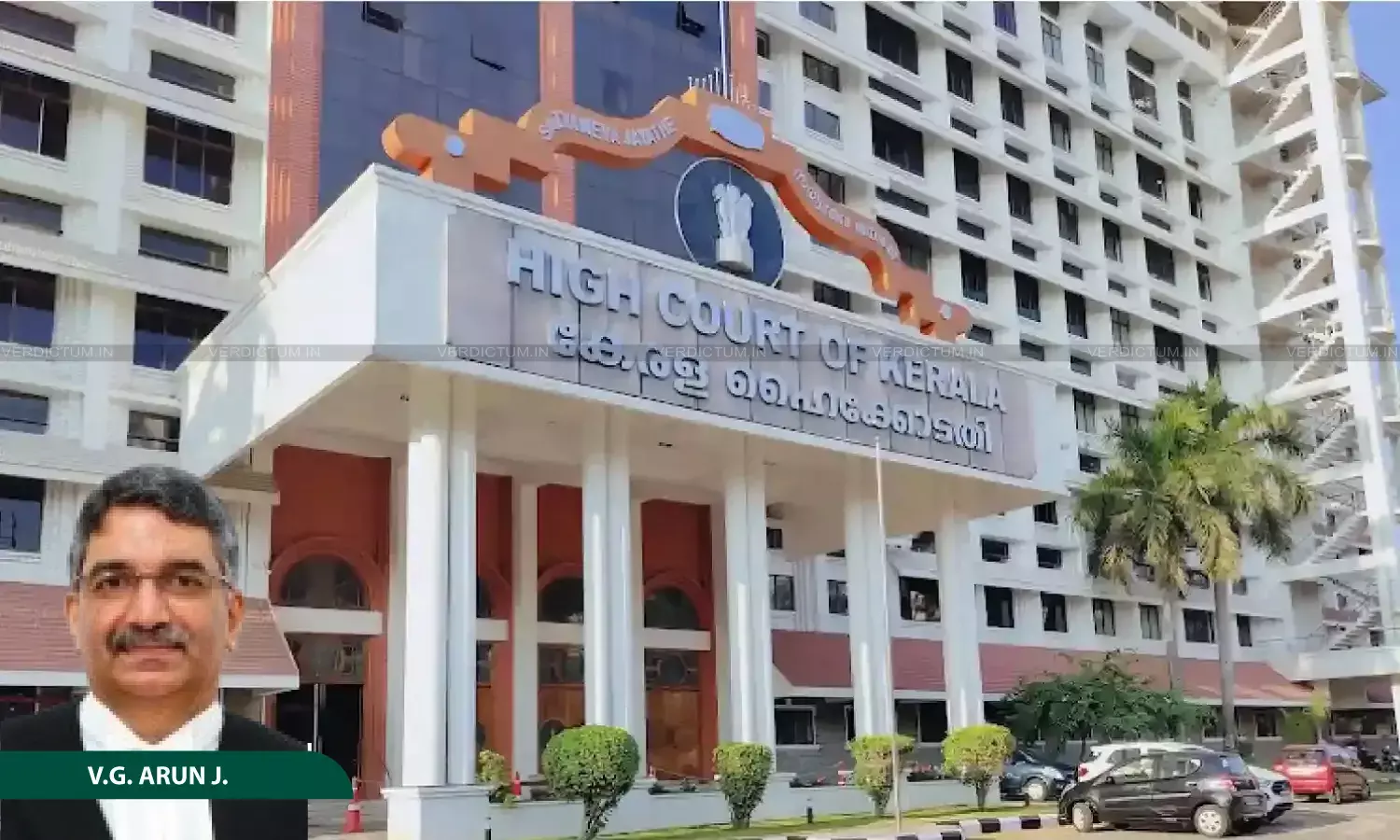NDPS Act| Power To Seize Illegally Acquired Property Only To Be Exercised If There Is Reason To Believe Based On Cogent Materials, Not Mere Assumptions: Kerala High Court
The Kerala High Court was considering a Petition against confiscation of a Scooter by exercising the power under Section 68F of the NDPS Act.

Justice V.G. Arun, Kerala High Court
The Kerala High Court has held that the power to seize or freeze a property can be exercised only if there is reason to believe, based on inquiry, investigation or survey, that the property is illegally acquired.
The Court was considering a Petition against confiscation of a Scooter by exercising the power under Section 68F of the NDPS Act alleging it was purchased by utilizing the proceeds of the narcotic deals of the petitioners' son, who is an accused in Crime registered for offences punishable under Sections 20(b)(ii)C, 25 and 29 of the Narcotic Drugs and Psychotropic Substances Act, 1985.
The Bench of Justice V. G. Arun observed, "....the power to seize or freeze a property can be exercised only if there is reason to believe, based on inquiry, investigation or survey, that the property is illegally acquired. The ‘reason to believe’ should be based on cogent materials and not mere assumptions. Going by the definition of 'illegally acquired property' in Section 68B(g), for a property to be illegally acquired, it should have been acquired wholly or partly or by means of any income, earnings or assets derived or obtained from or attributable to the contravention of the provisions of the NDPS Act."
The Petitioner was represented by Advocate Mohanan M.K., while the Respondent was represented by Public Prosecutor Vipin Narayanan.
Facts of the Case
Counsel for the Petitioners submitted that the accused boy son was aged only 19 years as on the date of registration of the Crime and 14 years in 2020, when the scooter was purchased and hence the scooter cannot be proceeded against on the premise that it is illegally acquired property.
On the other hand, the Public Prosecutor referred to Section 68F of the NDPS Act to point out that the power vested with the officer conducting investigation can be exercised if he has reason to believe that any property in relation to which an enquiry or investigation is being conducted is an illegally acquired property.
Reasoning By Court
The Court looked into the relevant provision and noted that it is only after tracing and identifying the illegally acquired property, the officer can make an order for seizing or freezing such property, if he has reason to believe that the property is likely to be concealed, transferred or dealt with in any manner which will result in frustrating the proceeding relating to forfeiture of that property.
Referring to the Supreme Court's decision in Aslam Mohammod Merchant v. Competent Authority and Others, (2008), the Court reiterated that in order to forfeit a property in terms of Chapter VA of the NDPS Act, a direct nexus/ link is necessary between the property sought to be forfeited and the properties illegally acquired.
"As rightly contended by the learned counsel for the petitioners, by no stretch of imagination can the scooter purchased by the petitioners in 2020, when their son was aged only 14 years, be termed as illegally acquired property by reason of he being arraigned as an accused in an NDPS crime in the year 2025. The Investigating Officer cannot have a case that the petitioners' son had derived income by contravening the provisions of the NDPS Act way back in the year 2020....", the Court observed.
The Petition was accordingly allowed.
Cause Title: Usman Kunju v. State of Kerala (2025:KER:74419)
Appearances:
Petitioners- Advocate Mohanan M.K., Advocate Steewaugh Shaji Cherian
Respondents- Public Prosecutor Vipin Narayanan
Click here to read/ download Order

